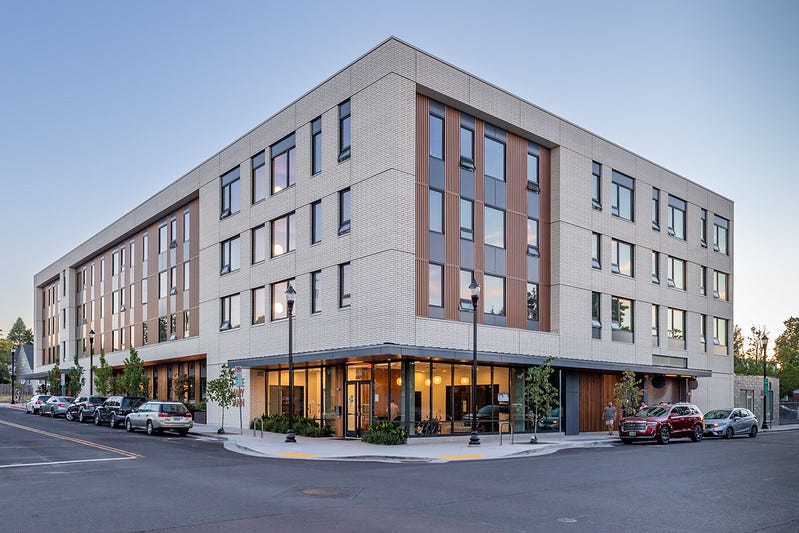Washington County’s homelessness problem is fixable, but we need help
Partnerships between state and federal agencies, local governments and non-profit organizations are essential to providing shelter

As the Mayor of Beaverton, I have witnessed firsthand the heartbreak and challenges of homelessness in our community. Without significant effort, we will continue to see record numbers of individuals experiencing homelessness in the coming years. But I have hope for a different future.
Through partnerships with state and federal agencies, local governments and non-profit organizations have made progress in reducing the severity of the problem.
In Beaverton, we have raised $11.4 million for a new year-round shelter—the first of its kind in the county. But we aren’t doing it alone – it requires every level of government coming together to make this shelter a reality. By continuing to work together, we have the potential to not just manage homelessness but to solve this challenge once and for all. And it will take cooperation from all levels of government and support from the community to do it.
Washington County faces both individual and societal level challenges that contribute to the prevalence of homelessness. Before we jump to solutions, we need to first get down to the multitude of causes of homelessness. Many Oregonians are just one bad day away from losing their housing. According to the Federal Reserve, 32% of Americans would be unable to withstand an unexpected $400 expense without selling something or taking a loan. This means that losing a job, having an accident, or getting an illness could take away their ability to afford rent or mortgage payments. Untreated mental illnesses or substance abuse disorders also increase the odds of a person becoming homeless. According to the Substance Abuse and Mental Health Services Administration, Oregon is third and fifth in the nation for untreated mental illness and substance abuse, respectively.
These problems are intensified when there are few pathways to housing. According to Zillow, the median price of a rental unit in Beaverton has nearly doubled—from $1,189 in 2015 to $1,950 in 2023. Since 2011, the median value of a home in Beaverton has tripled. Rental vacancy rates in the Portland metro area are some of the lowest in the country, which drives prices up. In this environment, people are more likely to lose their housing due to cost and are less likely than ever to find housing that they can afford.
This perfect storm of factors means that we are likely to see more residents experiencing homelessness and experiencing it for an extended period—if we don’t act. Strong partnerships are a key part of the action that is needed. The City and our partners have been working to meet a variety of the short- and long-term needs of people experiencing homelessness.
The City of Beaverton offers a winter shelter to keep people out of the elements. In addition, the city has an outreach worker based out of the library, police bike patrol and street outreach workers to connect people with resources, and a safe parking program to give people who live out of their cars a safe place to sleep at night. The City also provides grant funding and other support to a variety of partners providing housing and homelessness services such as HomePlate, Ecumenical Ministries of Oregon, Project Homeless Connect, Boys and Girls Aid, Community Partners for Affordable Housing, Community Action, and others.
Governor Kotek’s Executive Order and subsequent funding of a combined $8 million coming to Washington County, Beaverton, and Hillsboro will enable us to keep the doors of our winter shelter open throughout spring and summer. Funding from the Metro government has allowed the city to expand our shelter services from one day per week to seven days per week. Due to the city, county, and local partners’ efforts, the rate of people experiencing homelessness in Washington County who are unsheltered has dropped from 72% in 2009 to 28% in 2022. This positive impact shows that collective action can make a big difference.
However, while these programs have had a positive effect, the core issue of scarce housing remains. The City has worked diligently to address the core issue of housing, but we know it’s not enough. Four hundred and three affordable housing units have been built since I started my tenure in 2021. The City continues to partner with agencies to help residents find and afford housing, and keep the housing they have.
Mayors are on the frontlines of this humanitarian crisis—we are closest to the issues and we’re the level of government held accountable for solutions. However, we cannot solve this on our own. Federal and state governments must continue to help local governments and organizations who are the boots on the ground: assisting those at risk of losing their housing; building more affordable and market-rate housing; establishing support for people to access childcare, healthcare, and education; providing services to help those struggling with substance abuse disorders and mental illnesses; and re-establishing a basic safety-net so that no one has to live on the street. If we do this together, we can solve homelessness.
Solving homelessness is imperative to uphold the values of empathy, justice, and equality that we claim to cherish as a society. By embracing this challenge and working together, we can address the root causes of homelessness, restore the dignity of our fellow human beings, and foster a more compassionate and inclusive community. I call upon our state lawmakers to continue investing in local governments who are on the ground implementing real solutions.
Lacey Beaty is the Mayor of Beaverton, Oregon


